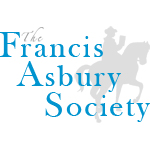Scripture reading: Galatians 1:6–10
The Great Prohibition
Jesus asked them, “Who do you say that I am?” Peter answered, “You are the Christ.”
And Jesus strictly charged them to tell no one about him. (Mark 8:29–30)
Imagine how a grocer would feel if he discovered that the meat he had been selling in his store contained the E-coli virus. He had assumed he was doing the public a service by selling fresh beef, when in reality he was spreading a life-threatening disease. Now imagine what a preacher of the gospel would feel if he discovered that the gospel he had been preaching was contaminated. He had assumed that he was spreading good news of salvation, but in reality he was disseminating disease and death.
In the eighth chapter of Mark, the disciples finally grasp the reality of Jesus’ true identity. Peter, speaking for them all, makes his Great Confession: “You are the Messiah.” But rather than urging his disciples to go into the world and tell every- one this good news, Jesus “strictly charged them to tell no one.” Rather than issuing the Great Commission at this point and sending his disciples into the world, he announces the Great Prohibition: Keep your mouths shut and tell no one!
It was only after Peter’s confession that Jesus, waiting for the right moment, introduced the subject of the cross. Now that the disciples understood who he was (his identity), he seized the moment to explain why he had come (his mission):
And he began to teach them that the Son of Man must suffer many things and be rejected by the elders and the chief priests and the scribes and be killed and after three days rise again. And he said this plainly . . . And calling the crowd to him with his disciples, he said to them, “If anyone would come after me, let him deny himself and take up his cross and follow me.” (Mark 8:31–32, 34)
Jesus did not permit his disciples to go and preach because he knew they did not yet understand the cross, both his and theirs. If they had gone out to evangelize at that point, they would have unknowingly been offering a gospel infected with a deadly virus. They still believed that the Messiah’s arrival meant health, wealth and happiness for all his followers. Until the virus of selfish ambition was purged from their witness, they were in danger of passing on a gospel that was poisonous, toxic and deadly. A gospel without the cross is no gospel at all.
It would take Calvary, Easter, and Pentecost to teach the disciples that the cross was not an unfortunate accident, an aberration. It was, rather, the central point of Jesus’ coming . . . and their going!
Until the cross is central to our witness, our efforts to evangelize the world will actually spread the very disease that the Gospel is intended to cure! Is the cross the defining reality of your life and witness? If not, your ministry to the world may be doing more harm than good.
Cheap grace is the deadly enemy of our church
. . . it is the preaching of forgiveness without requiring repentance, baptism without church discipline, Communion without confession . . . Cheap grace is grace without discipleship, grace without the cross, grace without Jesus Christ.
—Dietrich Bonhoeffer
point to ponder • Promoting a false understanding of Jesus is more spiritu- ally toxic than promoting another religion.
prayer focus • Your pastor(s).
